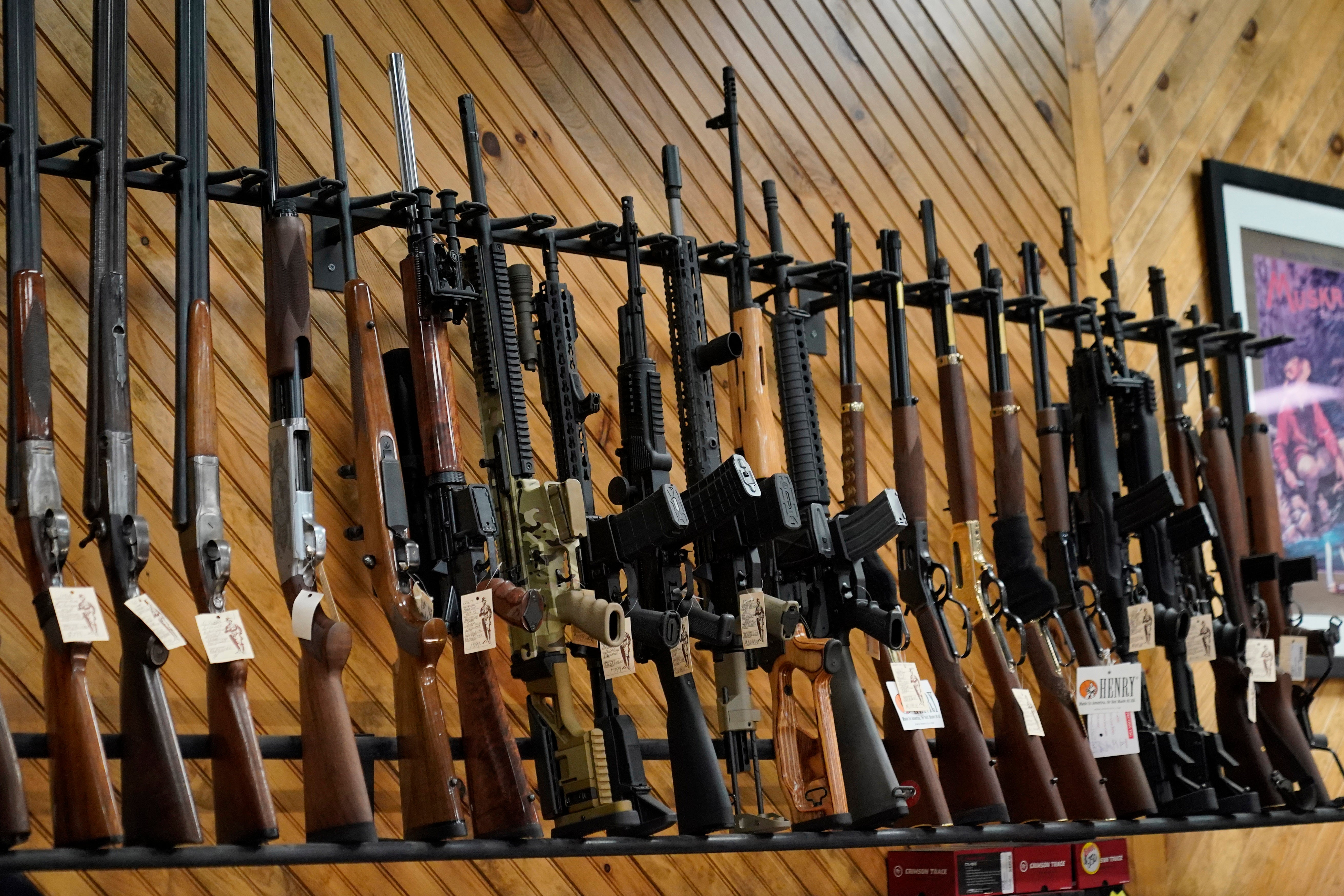Federal court rules firearm restrictions on defendants awaiting trial are constitutional
Court orders that prohibited two criminal defendants from possessing firearms while they awaited trial were constitutional because they were in line with past restrictions on firearms

Your support helps us to tell the story
From reproductive rights to climate change to Big Tech, The Independent is on the ground when the story is developing. Whether it's investigating the financials of Elon Musk's pro-Trump PAC or producing our latest documentary, 'The A Word', which shines a light on the American women fighting for reproductive rights, we know how important it is to parse out the facts from the messaging.
At such a critical moment in US history, we need reporters on the ground. Your donation allows us to keep sending journalists to speak to both sides of the story.
The Independent is trusted by Americans across the entire political spectrum. And unlike many other quality news outlets, we choose not to lock Americans out of our reporting and analysis with paywalls. We believe quality journalism should be available to everyone, paid for by those who can afford it.
Your support makes all the difference.Court orders that prohibited two criminal defendants from possessing firearms while they awaited trial were constitutional because they were in line with past restrictions on firearms, a federal court ruled Monday.
Judge Gabriel P. Sanchez, writing for a unanimous three-judge panel of the U.S. 9th Circuit Court of Appeals, found that U.S. laws have historically sought to disarm dangerous criminal defendants, the Los Angeles Times reported.
Sanchez said those previous prohibitions justified the restrictions placed on John Thomas Fencl and Jesus Perez-Garcia, defendants in California whose challenges to the law were consolidated in Monday’s order.
“Here, the historical evidence, when considered as a whole, shows a long and broad history of legislatures exercising authority to disarm people whose possession of firearms would pose an unusual danger, beyond the ordinary citizen, to themselves or others,” Sanchez wrote. “The temporary disarmament of Fencl and Perez-Garcia as a means reasonably necessary to protect public safety falls within that historical tradition.”
Katie Hurrelbrink, an attorney for both men, told the Times she intended to “continue litigating this” by asking for a review by a larger, en banc appellate panel and, if necessary, the U.S. Supreme Court.
U.S. Attorney Tara McGrath said in a statement that the ruling “recognized the long history of keeping firearms out of the hands of those who refuse to abide by the law."
The Times cited court records that show Fencl was arrested and charged with various crimes after law enforcement officials discovered more than 100 guns in his home near San Diego. Perez-Garcia was arrested at the U.S.-Mexico border when a customs inspection of a vehicle in which he was a passenger uncovered about 11 kilograms of methamphetamine and half a kilogram of fentanyl, court records show.
Both Fencl and Perez-Garcia argued that while detained defendants had historically had firearms taken away from them, there was no historical record of detainees who had been released from detention being precluded from possessing firearms.
Sanchez wrote that the decision to take their guns was “consistent with our nation’s long history of temporarily disarming criminal defendants facing serious charges and those deemed dangerous or unwilling to follow the law.”
Both men were released from custody pending trial and subsequently challenged the terms of their release under a “history and tradition” test the U.S. Supreme Court established in 2022 for assessing the constitutionality of gun laws nationwide. In New York State Rifle & Pistol Assn. vs. Bruen, the high court said that gun laws are legitimate only if they are rooted in U.S. history and tradition or are sufficiently analogous to some historic law.
The Bruen decision led to a surge in challenges to gun laws.